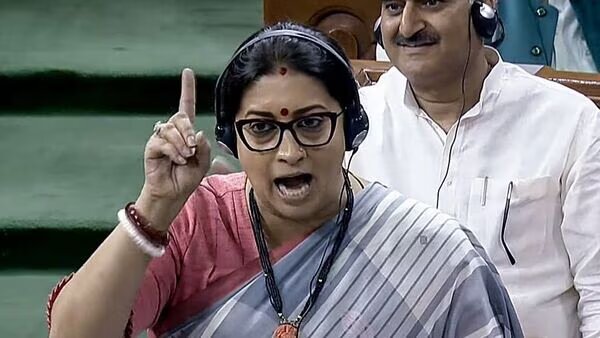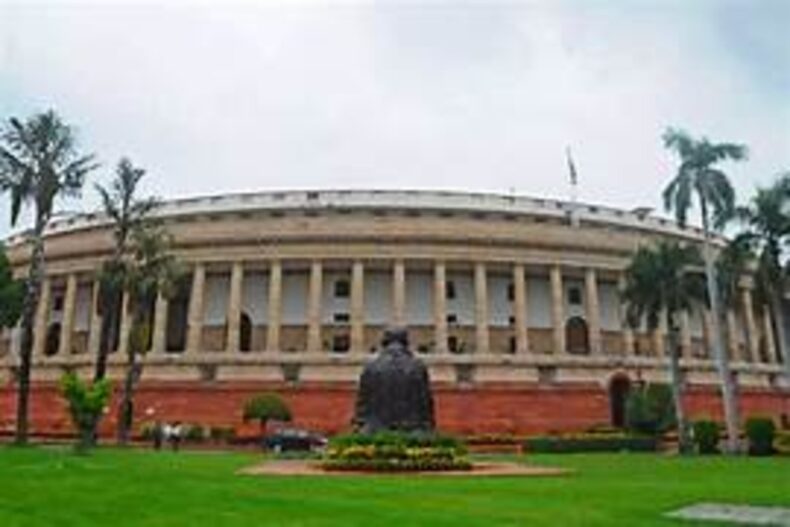In the ongoing political proceeding surrounding a motion of no confidence, Monday saw a heated exchange between two prominent Indian politicians; Smriti Irani and Rahul Gandhi. The proceedings were marked by scathing rhetoric, accusations and defiance that captured national attention.
The background of this exchange was the movement of criticism brought by the opposition against the government in place. As the political climate heated up, Smriti Irani, a prominent member of the ruling party, spoke. Irani, known for her clear and inspirational speeches, did not disappoint. She directed her remarks at Rahul Gandhi, a prominent opposition leader, in a move that set the session on fire.

In a clear and sharp statement, Irani challenged Gandhi’s determination and beliefs. She said: “If Rahul Gandhi has the courage, then he should answer the accusations against his party.” This direct appeal reverberated throughout the council, setting the stage for a dramatic confrontation. Irani’s choice of words was deliberate, seeking to position Gandhi as a leader who would take responsibility or someone who would shirk responsibility.
Irani’s challenge encapsulates the essence of political discourse in India. Accusations and rebuttals are not uncommon, but the call for a response has clearly elevated the debate. He emphasized the need for transparency, open dialogue and willingness to participate in the opponent’s requests. The challenge allowed Gandhi to grasp the story, either refuting claims with concrete evidence or admitting shortcomings.
The phrase “If Rahul Gandhi has courage” is trending on social media, with supporters and critics weighing in on the issue. This incident has highlighted the strategic nature of political communication, where the wording of a statement can reshape entire discourse. Gandhi’s response, or lack thereof, will likely be key in shaping public opinion and the trajectory of the no-confidence movement. A well-thought-out response is likely to turn the tide in the opposition’s favor, while a failure to meet the challenge can strengthen the ruling party’s position. The weight of that moment did not lessen for anyone present, and the wait for Gandhi’s answer hung in the air.
Beyond the immediate political implications, this exchange raises broader questions about the nature of political discourse and accountability. He stressed the importance of leaders engaging in substantive discussions rather than resorting to mere rhetoric. Political leaders are increasingly subject to higher standards of transparency and responsiveness, and challenges like the one posed by Irani underscore these ever-changing expectations.
At the end of the day, the impact of Irani’s protests spread across the political landscape. The coming days are sure to be marked by intense speculation, analysis, and anticipation of Gandhi’s reaction. Whatever the outcome, this exchange will serve as a case study in political communication, highlighting the art of making statements and capturing key moments to influence public opinion.
In a democracy, the power of discourse proves the health of the system. Challenges and counterattacks are an integral part of this process, motivating leaders to articulate their views, defend their actions, and engage with their opponents. Smriti Irani’s challenge to Rahul Gandhi encapsulates this essence, reminding the nation that the vitality of democracy rests on the courage to react, the will to engage, and the commitment to take responsibility.












